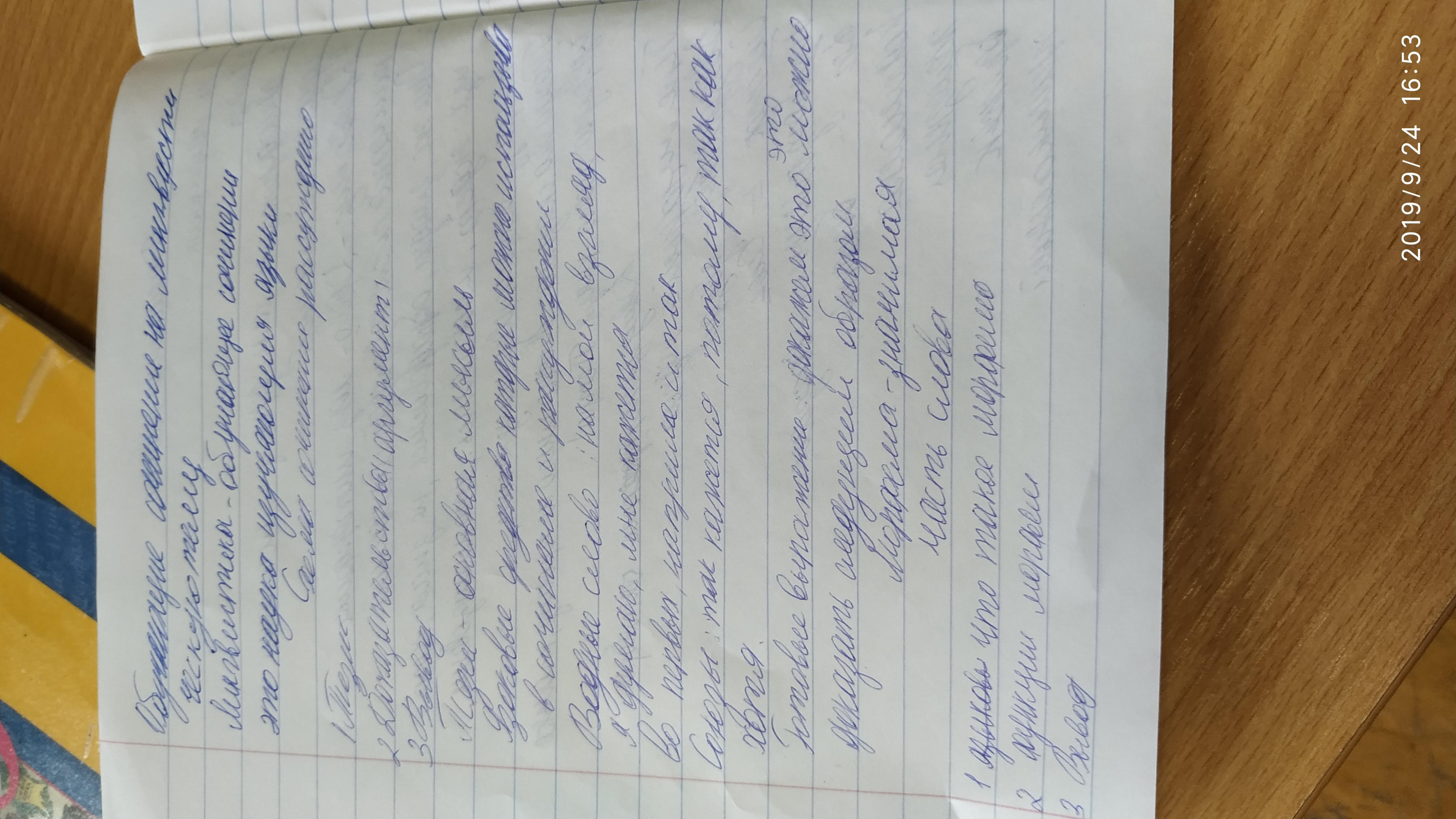Предмет: Русский язык,
автор: ewandodonov
Сочинение на тему моофема СРОЧНО
Приложения:

Ответы
Автор ответа:
1
Начнем с того, что в своей речи мы пользуемся словами. Каждое слово звучит. Значит, оно состоит из звуков, который каждый в отдельности не имеет лексического значения. Слово можно также разделить на минимальные значимые части, которые называются греческим термином "морфема".
Каждое изменяемое слово состоит из основы и окончания. Окончание образует форму слова и служит для связи слов в словосочетании или предложении. Как словоизменительная морфема, оно выражает различные грамматические значения, например, у существительных - падеж и число, а у числительных - падеж:
сосна - сосн-е, сосн-ой, сосн-ы;
тр-и, тр-ёх, тр-емя.
У глаголов в форме настоящего времени окончание выражает грамматическую категорию лица и числа, например:
я бег-у, ты беж-ишь, они бег-ут.
В основе слова выделим минимальные значимые части: приставку, корень, суффикс, постфикс.
Корень - это главная морфема слова, в которой заключается общее лексическое значение родственных слов. Например, со словом "вода" связаны общим корнем прилагательные "водный", "водянистый", "подводный", существительные "водичка", "водица", "подводник".
Суффикс служит для образования новых слов, например, суффиксы -чик и -щик образуют слова, обозначающие специальность, занятие человека: летчик, водопроводчик, банщик, сварщик, бетонщик.
Приставка приютилась в начале слова и образует новые слова:
автор - со-автор;
бежать - при-бежать;
когда - не-когда.
С помощью приставок возникают слова с новым значением, сравним: при-ползти и вы-ползти; писать и пере-писать.
В конце слова после окончания в глаголах может быть постфикс -ся, который указывает на возвратность действия:
вернуть - вернуть-ся;
собрать - собрать-ся.
Вот так вкратце. Не знаю, для какого класса нужен сей опус. Может, сложновато написала и не все, конечно, например, о формообразующих суффиксах, об соединительных гласных не упомянула.
Каждое изменяемое слово состоит из основы и окончания. Окончание образует форму слова и служит для связи слов в словосочетании или предложении. Как словоизменительная морфема, оно выражает различные грамматические значения, например, у существительных - падеж и число, а у числительных - падеж:
сосна - сосн-е, сосн-ой, сосн-ы;
тр-и, тр-ёх, тр-емя.
У глаголов в форме настоящего времени окончание выражает грамматическую категорию лица и числа, например:
я бег-у, ты беж-ишь, они бег-ут.
В основе слова выделим минимальные значимые части: приставку, корень, суффикс, постфикс.
Корень - это главная морфема слова, в которой заключается общее лексическое значение родственных слов. Например, со словом "вода" связаны общим корнем прилагательные "водный", "водянистый", "подводный", существительные "водичка", "водица", "подводник".
Суффикс служит для образования новых слов, например, суффиксы -чик и -щик образуют слова, обозначающие специальность, занятие человека: летчик, водопроводчик, банщик, сварщик, бетонщик.
Приставка приютилась в начале слова и образует новые слова:
автор - со-автор;
бежать - при-бежать;
когда - не-когда.
С помощью приставок возникают слова с новым значением, сравним: при-ползти и вы-ползти; писать и пере-писать.
В конце слова после окончания в глаголах может быть постфикс -ся, который указывает на возвратность действия:
вернуть - вернуть-ся;
собрать - собрать-ся.
Вот так вкратце. Не знаю, для какого класса нужен сей опус. Может, сложновато написала и не все, конечно, например, о формообразующих суффиксах, об соединительных гласных не упомянула.
Похожие вопросы
Предмет: Математика,
автор: Spu4nix
Предмет: Математика,
автор: kirillharitosha
Предмет: Математика,
автор: goga200957855
Предмет: Математика,
автор: нурай55555551029
Предмет: Музыка,
автор: anelinalina